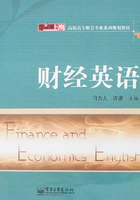
Reading Materials
 Part A
Part A
Culture Difference
(Here is a conversation between several businessmen.)
Interviewer: So, Rob, you went to Brazil recently, didn’t you?
Rob: Yes, I did, that’s right.
Interviewer: So, what happened?
Rob: Well, I went into this meeting and there were about seven or eight people there, and I just said “Hello” to everybody and sat down. Apparently, what I should have done is to go round the room shaking hands with everyone. I mean that I think they felt I was taking them for granted.
Kate: Well, I know that because when I was in France the first time, I finished a meeting with, oh, gosh, it was about half a dozen people and I was in a hurry to leave, so I just said “Goodbye, everyone!”, you know, to all the people there. Well, I later found out that what I should have done is to shake hands with everyone in the group when I left. Now apparently, it’s the polite thing to do.
Interviewer: Well, people shake hands in different ways, don’t they?
Rob: Oh, yes, that’s right, they do. See, normally I shake hands quite gently when I meet someone. So when I went to the USA for the first time, I felt people there thought my weak handshake was a sign of weakness. Clearly, people tend to shake hands quite firmly there.
Kate: Oh, gosh! You know, that reminds me of my first trip to Germany, it was a long time ago, I was introduced to a boss of a company when he passed us in the corridor. Well, I wasn’t prepared , I mean, I had my left hand in my pocket. When we shook hands I realized my left hand was still in my pocket. Well, that was, you can imagine, very bad manners and I was quite embarrassed, you know.
Interviewer: And how about using first names? Have you made any mistakes there?
Rob: Oh, yes, I have! When I first went to Italy, I thought it was OK to use everyone’s first name so as to seem friendly. But then I discovered that in business you shouldn’t use people’s first name unless you are invited to.
Kate: Well, when I met people in Russia, you know, they seemed to be puzzled when I shook hands with them and said “How do you do?”Well, what they do when they greet a stranger is to say their own names, so I had that all wrong!
Rob: Oh, yes, I agree with that. Remembering names is very important. I found business cards very useful when I was in Japan not so long ago. Each person can clearly see the other’s name and the job title on the card itself. And then I found out that you have to treat business cards with respect. What you’ve got to do is to hold them with both hands and then read them very carefully. What happened to me was—At the first time I just took a man’s card with one hand and put it straight into my pocket.
(From: Leo Jones. 新剑桥商务英语. 北京:人民邮电出版社,2004)
 New Words and Expressions
New Words and Expressions
apparently[ə上pærəntIi] adv. 显然,显而易见
firmly[上fə:mIi] adv. 坚定地,紧紧地
embarrassed[ɪm上bærəst] adj. 尴尬的,受窘的
unintentionally [下ʌnin上tenʃənəIi] adv. 非有意地
criticize [上kritisaiz] v. 批评
confrontation [下kɔnfrən上teiʃən] n. 对抗,冲突
shake [ʃeik] v. 摇晃,震动
polite[pə上Iait] adj. 礼貌的
corridor [上kɔridɔ:] n. 走廊
puzzled[上pʌzId] adj. 迷惑的,困惑的
pocket [上pɔkit] n. 口袋,衣袋
pretend [pri上tend] v. 装作,假装
amused[ə上mju:zd] adj. 被取笑的
avoid [ə上vɔid] v. 避免,躲避
 Part B
Part B
A Sample Resume
The Functional Form
Name: Li Hong
Sex: Female
Date of birth: April 2, 1965
Place of birth: Zhejiang, P.R.C.
Nationality: Chinese
Height: 1.60m
Weight: 65kg
Marital status: Single
Children: None
Religion: None
Party affiliation: None
Education: Finished the three-year course at Yuren High School, Zhejiang, in 1985.Graduated from Zhejiang University, Hangzhou, with a B.S. degree in accounting in 1989.
Experience: Joined Zhiqiang Sales & Service Co. in 1989 and was assigned to the Accounting Department as accountant. Worked as chief accountant for ABC Electronic Corp. in 1992, serving in the position up this date.
Foreign language: English
Award: None
Punishment: None
Present address: No.17 Heping Road, Hangzhou, Zhejiang
Permanent address: No.72 Wenyi Road, Ningbo, Zhejiang
 New Words and Expressions
New Words and Expressions
assign [ə上sain ] v. 安排,分配
position [pə上ziʃən] n. 位置,职位
punishment [上p ʌ niʃmənt] n. 惩罚,处罚
chief accountant 会计主管
award [ə上wɔ:d ] n. & v. 奖励,授奖